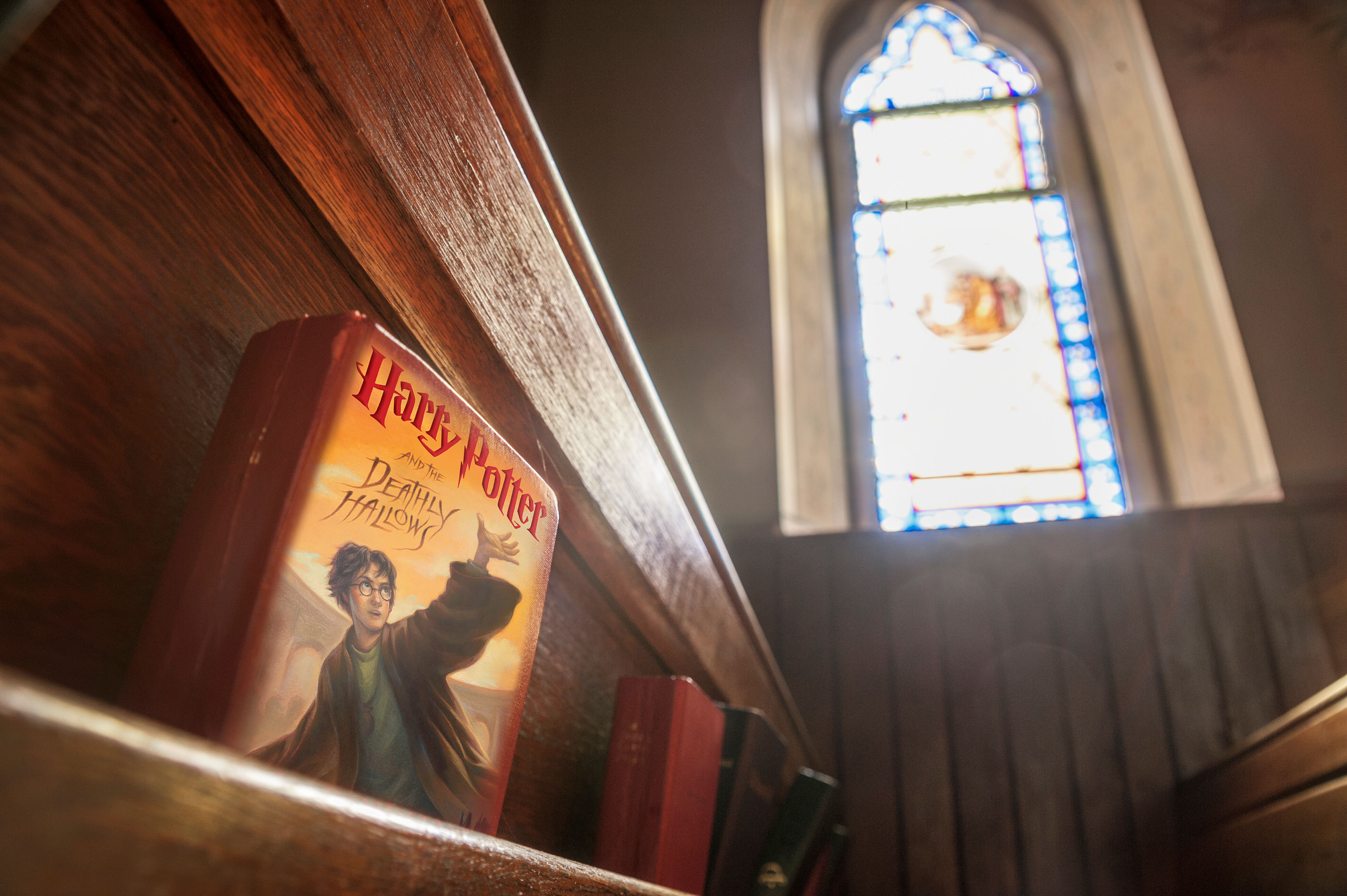What if Harry Potter was a religion?
For many readers, it already is


A free daily email with the biggest news stories of the day – and the best features from TheWeek.com
You are now subscribed
Your newsletter sign-up was successful
There are a few things Harry Potter fans can always count on in this unpredictable, muggle-filled world: Death, taxes, and the knowledge that there's always at least one passage in the seven-part Harry Potter series that can offer some semblance of comfort no matter what situation arises.
For instance, when my middle school teacher made a joke at my expense, I looked to Sirius Black for understanding. He said: "If you want to know what a man's like, take a good look at how he treats his inferiors, not his equals." When I was worried about moving thousands of miles away for college, I found Albus Dumbledore's words comforting: "We must try not to sink beneath our anguish, Harry, but battle on." And when a family member I cared very much about passed away, that same wise, old headmaster told me: "You think the dead we loved ever truly leave us? You think that we don't recall them more clearly than ever in times of great trouble?"
Since the first installment of Harry Potter was published nearly 20 years ago, the series has made history by selling more than 400 million copies. It has since become a multibillion-dollar industry, with a successful 8-part movie series, extravagant theme parks depicting the magical realm beyond the muggle world, and countless wizard-related paraphernalia.
The Week
Escape your echo chamber. Get the facts behind the news, plus analysis from multiple perspectives.

Sign up for The Week's Free Newsletters
From our morning news briefing to a weekly Good News Newsletter, get the best of The Week delivered directly to your inbox.
From our morning news briefing to a weekly Good News Newsletter, get the best of The Week delivered directly to your inbox.
But the books have also, very organically, transcended to the rank of spiritual text.
I don't mean to imply that J.K. Rowling is some sort of prophet, or that her books came through a divine revelation. But readers have formed a very special bond with these books. They look to them for guidance and solace in real life, the same way other people might look to the Bible. By believing in them and relying on them, readers have propelled the Harry Potter books beyond mere fiction.
Earlier this year, two religious scholars set out to take this trend and put some structure behind it. Vanessa Zoltan, a chaplain at Harvard University, and Casper ter Kuile, a minister-in-training, launched a podcast devoted to examining Harry Potter as religious text.
Every week, the Harry Potter And The Sacred Text podcast addresses a different chapter in the Harry Potter books, working to unveil the many blessings contained within the pages, and using the fictional stories to examine the huge theological questions surrounding love, fear, death, and even resurrection. "I think the themes in the book speak to so much," Kuile says.
A free daily email with the biggest news stories of the day – and the best features from TheWeek.com
The hosts employ Lectio Divina, which is typically a Christian tool for scripture reading that involves selecting a quote at random, reading it literally, figuring out what's going on in the text figuratively, determining how it speaks to us in our own lives and what action it inspires us to take.
For example, when Hagrid takes Harry for his first trip to Diagon Alley, the podcast lands on a seemingly benign quote: "Up another escalator, out into Paddington station; Harry only realized where they were when Hagrid tapped him on the shoulder. 'Got time fer a bite to eat before yer train leaves,' he said."
I assumed the hosts would struggle to find any sort of meaning behind that bit of text. But I was wrong. They go deep into the quote, discussing it in terms of a mentor recognizing an individual's potential and how they need to bestow that gift onto the younger generation.
Or, take this example, in which the hosts use Ginny Weasley's plight from Harry Potter and the Chamber of Secrets to ask: Who in our lives are we not listening to?

The podcast also tackles the art of forgiveness by examining the story of Petunia Dursley, Harry's neglectful aunt and guardian.

One episode also corresponded to the tragic shooting attack on a nightclub in Orlando. So before Zoltan and Kuile started the episode, they presented a spiritual offering to listeners in the form of a passage from The Goblet of Fire, when Voldemort kills Cedric Diggory. They told listeners to think of the dozens of victims when they hear Cedric's name. "Remember Cedric. Remember if the time comes when you have to make a choice between what is right and what is easy, remember what happened to a boy who was good and kind and brave, because he strayed across the path of violence. Remember Cedric Diggory."
The podcast now sees some 120,000 downloads each week, with listeners both religious and not. And why not? Rowling's characters, plot, and text have become constants in millions of people's lives throughout the world, providing solace for readers in scary, confusing, or even exciting times. As the podcast team explained it in their first episode, "Hogwarts will always be there as a place to return to, as a safe place."
Hallie Golden is a freelance journalist in Salt Lake City. Her articles have been published in such places as The New York Times, The Economist, and The Atlantic. She previously worked as a reporter for The Associated Press.
-
 How the FCC’s ‘equal time’ rule works
How the FCC’s ‘equal time’ rule worksIn the Spotlight The law is at the heart of the Colbert-CBS conflict
-
 What is the endgame in the DHS shutdown?
What is the endgame in the DHS shutdown?Today’s Big Question Democrats want to rein in ICE’s immigration crackdown
-
 ‘Poor time management isn’t just an inconvenience’
‘Poor time management isn’t just an inconvenience’Instant Opinion Opinion, comment and editorials of the day
